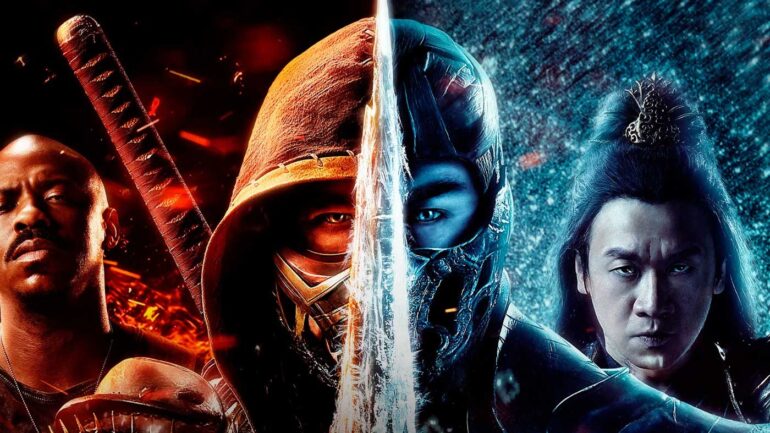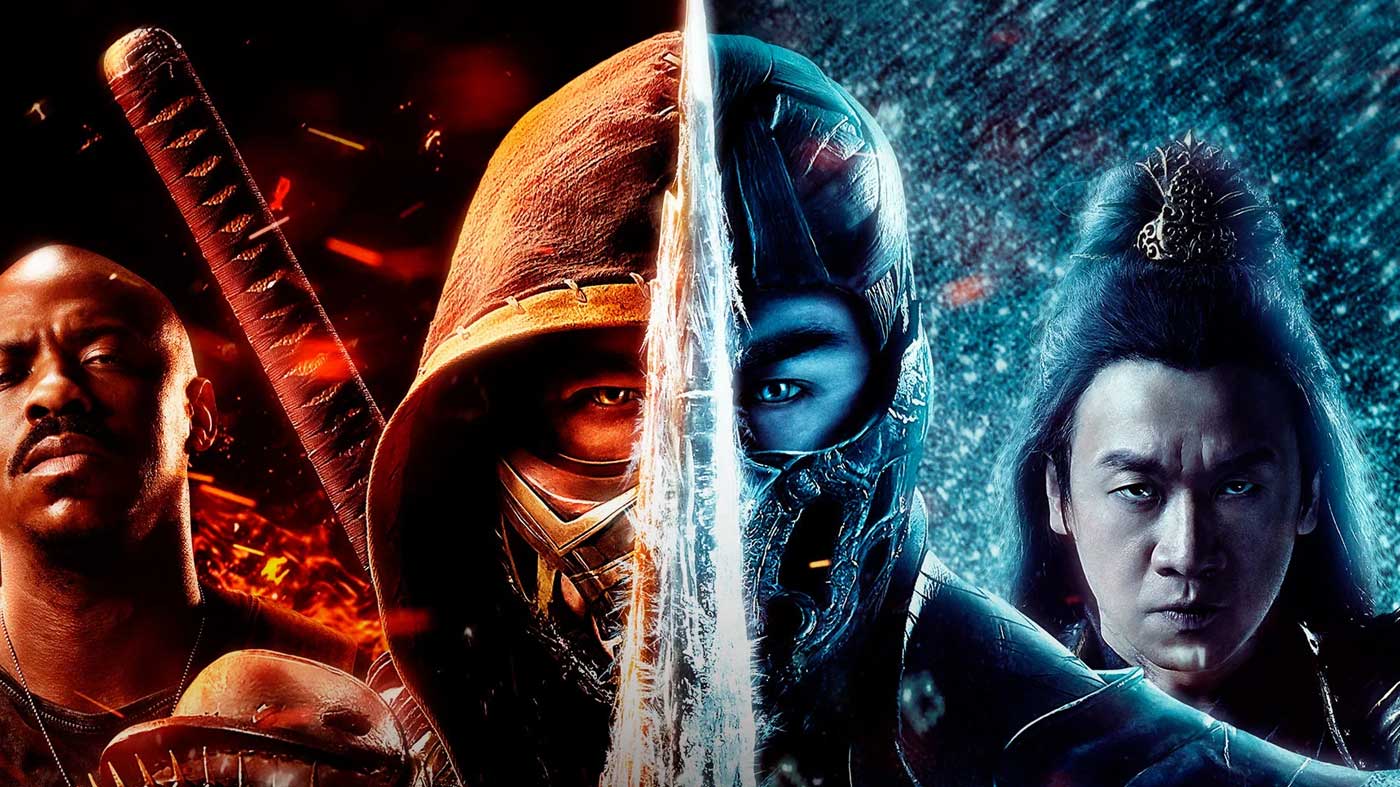Just as Mortal Kombat — the life or death tournament after which the games and film are named — comes around every so often, so does a video game film adaptation that doesn’t absolutely miss the mark. I didn’t expect lightning to strike again so close to the surprisingly decent Sonic the Hedgehog film, yet Simon McQuoid’s Mortal Kombat is as faithful a love letter to the confronting violence and martial arts on which the Mortal Kombat brand has built its name.
It’s difficult to avoid clunky, distracting exposition when dealing with an established canon focused on an enduring centuries-long arm wrestle between good and evil — Marvel is guilty of it, so I didn’t expect a video-game tie-in like Mortal Kombat to avoid committing one of popcorn Hollywood’s biggest sins. In an effort to justify the usual, exhaustive drivel that’s trotted out to quickly put the game’s history and its characters into context, the filmmakers introduce Cole Young.
New to the series and portrayed by Lewis Tan (Iron Fist, Into the Badlands), Cole represents the casual filmgoer who mightn’t have a working knowledge of the rules and players in Mortal Kombat. It’s just a shame he’s a bit dull and underdeveloped compared to the other larger-than-life caricatures, though his role as an analogue for the viewer is an essential one.
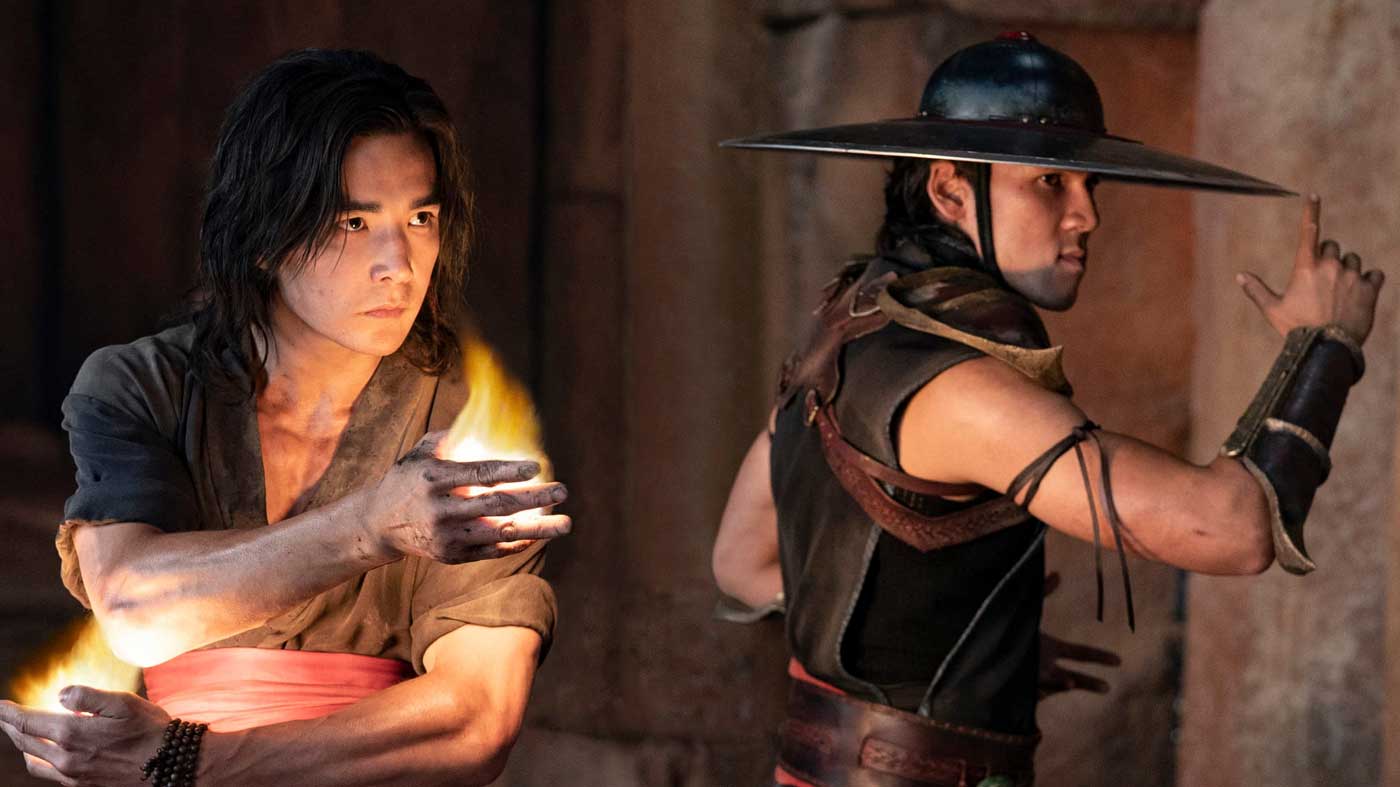
Because in his presence, it’s easier to accept Sonya Blade pulling the curtain back on her hideout’s conspiracy board, full of dot-connecting red string, which impossibly explains every precise detail of what’s driving the plot forward. From the conspicuous dragon markings that brand Earth’s chosen fighters — a plot device that invites further questioning I feel — to the realms beyond Earth and the stakes if our heroes fail to end their planet’s losing streak in this upcoming tenth Mortal Kombat. This kind of super exposition is necessary if a film is to cram decades worth of lore into a two-hour film, and it’s easy enough to excuse when McQuoid succeeds in capturing the game’s essence to a tee.
While the plot is there and serves as the fuel forcing this locomotive of a film towards the credits, Mortal Kombat really feels like a love letter to all of its more important facets. It’s got graceful martial art choreography that feels like an authentic performance piece within the film, I adore that they’ve cast so many actors with proficiencies in many disciplines. It’s also rich with the extreme gore and violence that the game series has built its reputation upon, they held nothing back which helped the film along to a hard-earned R18+ rating. Although I’ll long have a soft spot for the cast in the Mortal Kombat film from my childhood, I definitely appreciate the diverse cast that has been assembled for McQuoid’s take, including more than a few homegrown performances from Josh Lawson, Sisi Stringer, and Jessica McNamee who all catapult themselves into their roles — particularly Lawson with his rough as guts, ocker mercenary Kano who, I expect, had more than enough fun making this picture.
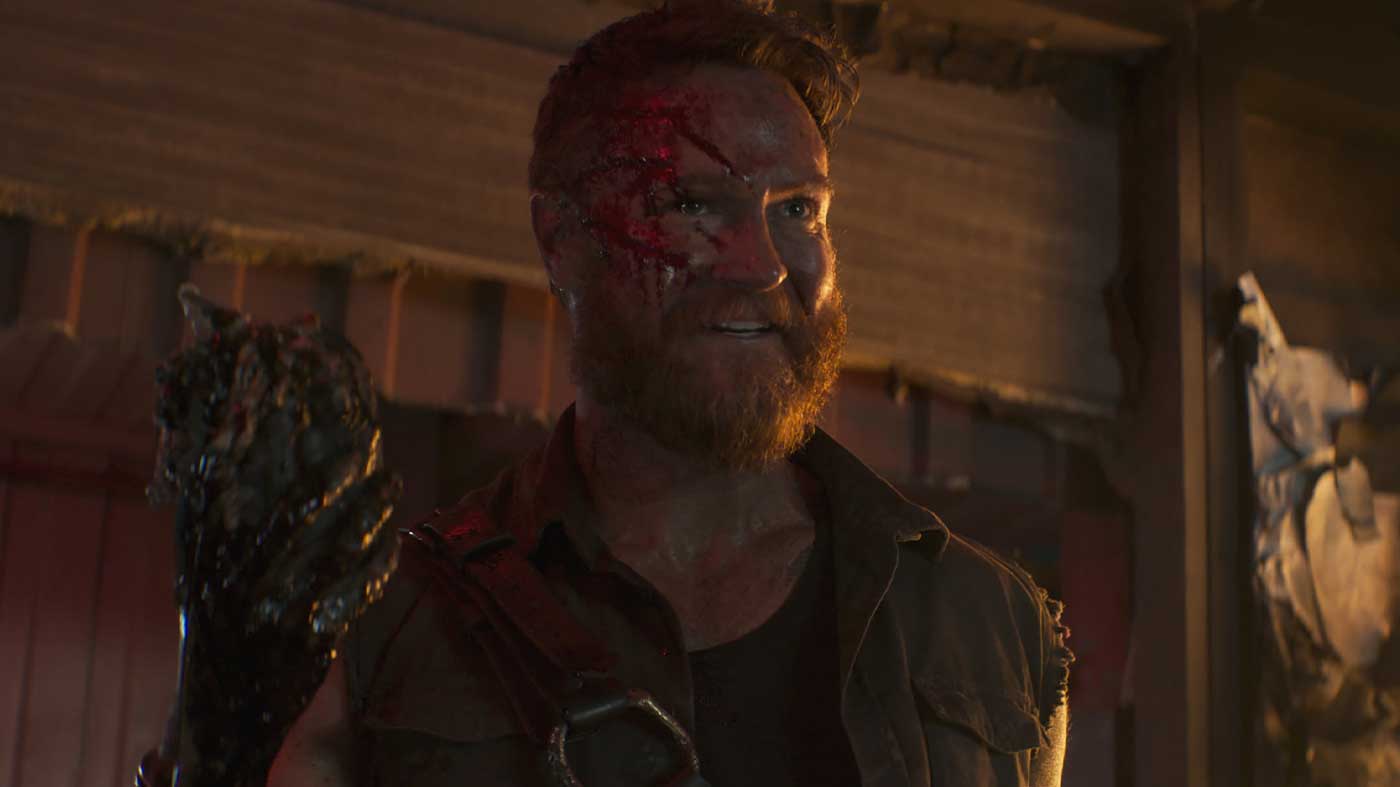
Sub-Zero, first introduced as Bi-Han, is a genuine scene-stealer in Mortal Kombat, Joe Taslim plays him with a menacingly cold precision — pun intended — that just leaves his presence hanging over the entire film. Tasked by the wooden one-note conqueror Shang Tsung with cutting the band of heroes off at their knees, the way he hunts Earthrealm makes him feel more like an unstoppable force of nature. Just about every scene Sub-Zero is in feels like fan service, which is something Mortal Kombat has plenty of if nothing else. Countless fatalities, famous catchphrases, character face-offs, and that moment when the unmistakable theme kicks in. Where most video game adaptations miss the mark, Mortal Kombat is true to the source.
I appreciate that McQuoid resisted the urge to cash in every big-name fighter, keeping both sides of the tournament bracket from Outworld and Earthrealm relatively focused with a nice mix of classic and relatively new. Especially in a film about literally removing the entrails from the other side that both the studio and the director helming it saw enough sequel potential here to show restraint in choosing their fighters.
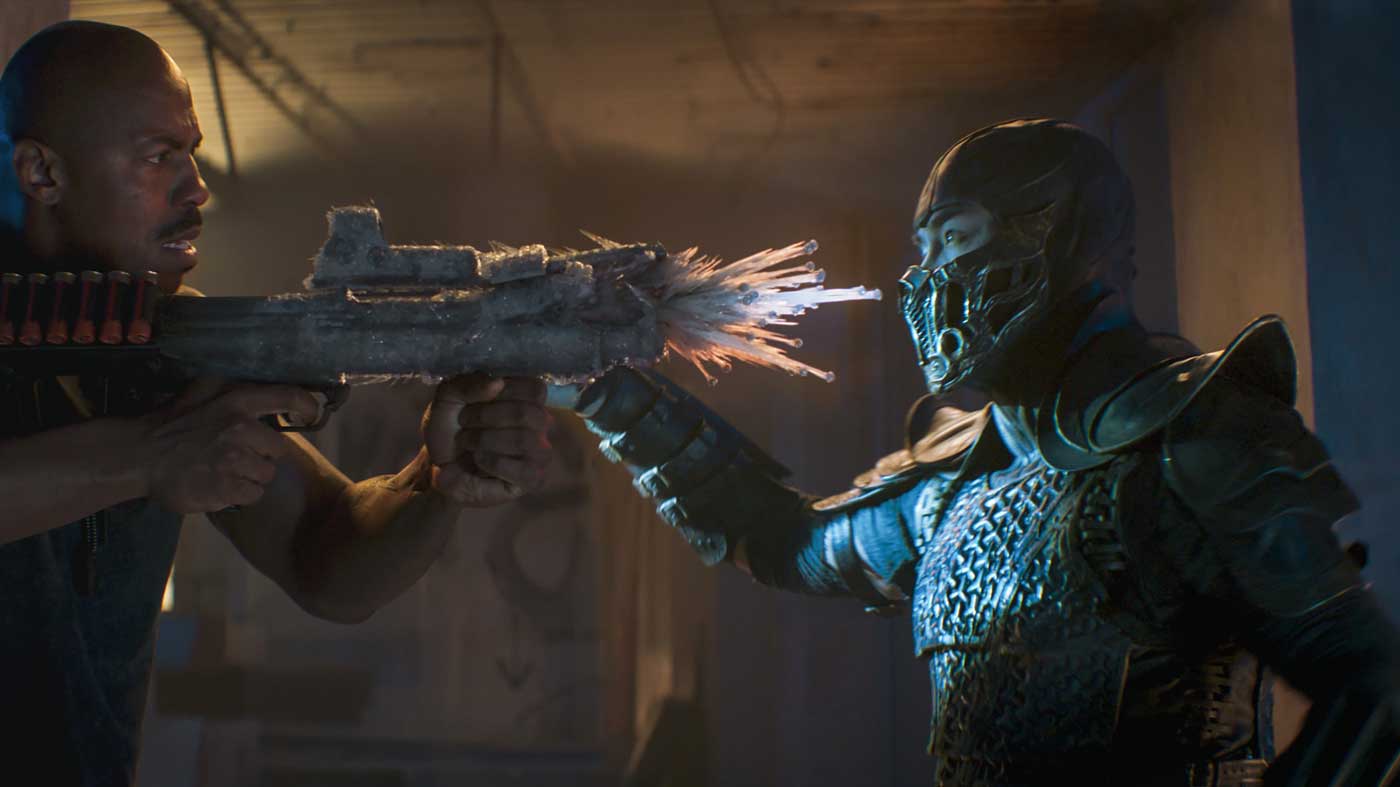
Although the film finds itself bogged down in its middle act as the fighters train to unlock their mojo. I imagine this gave Ludi Lin, who plays Liu Kang, a sense of déjà vu as it reminded me a lot of his Power Rangers film where the titular rangers toiled in a cave trying all manner of introspection and punching to discover hidden power, much like the regrettable twenty minutes in Mortal Kombat’s middle-arc. However, there are two particular conflicts full of sweet, sweet brutality that bookend the film, making the two hours feel particularly tight in spite of its issues.
I’m particularly impressed by the production values of McQuoid’s Mortal Kombat, for the most part. While Outworld is presented as a rather inexpensive, barren waste, the film’s budget is more evident in locations like Raiden’s temple and the beautiful and serene Japanese compound belonging to Hanzo Hasashi, who’d later become known as Scorpion. A lot of care has been taken to make Mortal Kombat as violent as possible and the visual effects are bloody impressive, save for one brief moment, which can be seen in the trailer, where Kano uses his eye laser from the side profile. There are some instances where the fully-rendered characters looked off when lit well, fortunately, McQuoid did well to stage them in darker settings for the most part to hide the warts a bit. That said, the costume department deserves a pat on the back for at least Scorpion and Sub-Zero’s attire, it’s come a long way from a basement-built, cheap look of over two decades ago.
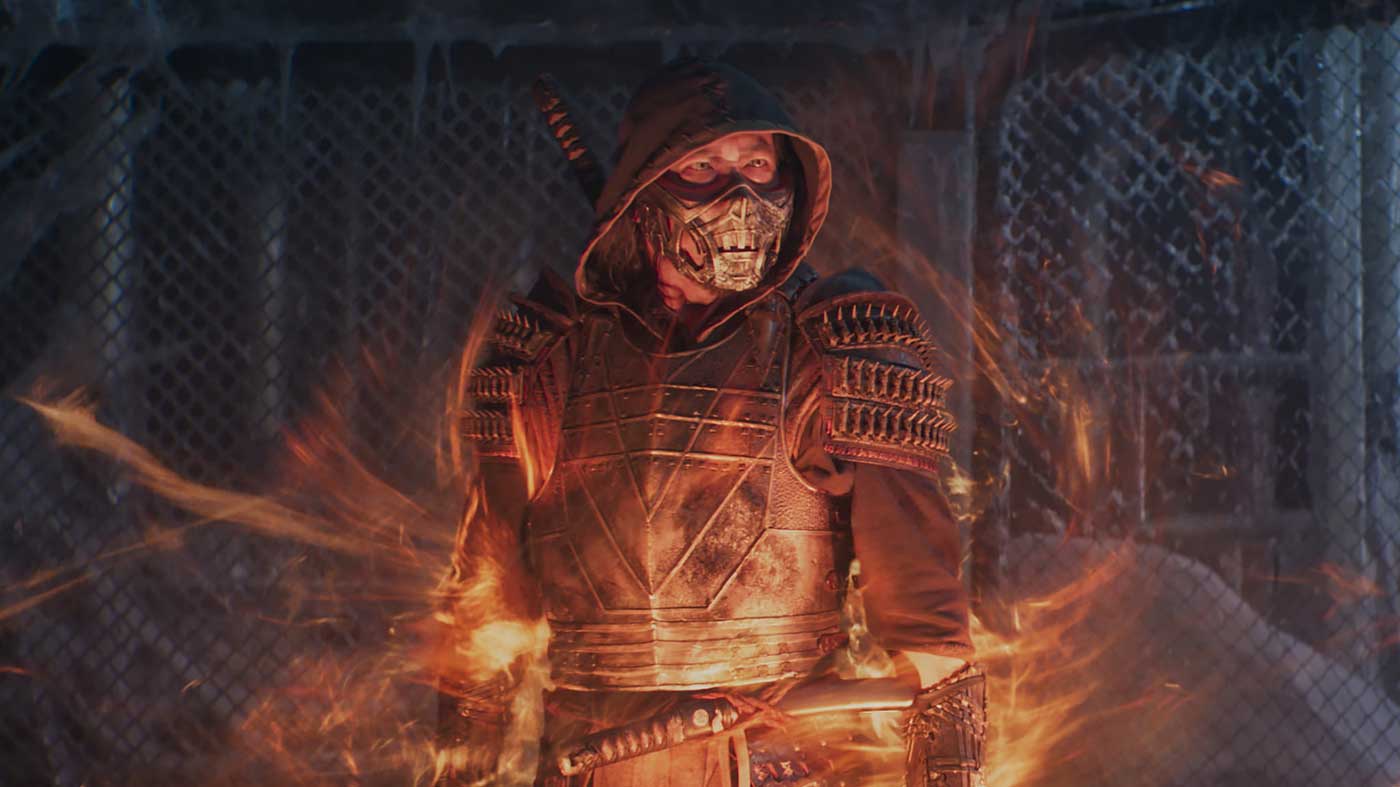
I feel as though this darker, grittier interpretation of Mortal Kombat does take itself a bit more seriously than the film from my childhood. Though it’s missing the campy eccentricity of Christopher Lambert’s Raiden and the unforgettable and immortal portrayal of Shang Tsung by Cary-Hiroyuki Tagawa, the cast all turn in honest performances as their characters. I do wish we got more time with Hiroyuki Sanada, arguably the film’s most decorated actor, who’s so under-utilised as Scorpion it hurts, though he kills it with the little screen time he gets. I’ll give a special shoutout to Ludi Lin’s rig in this flick, he got into spectacular shape for his role as Liu Kang and I can only say the all-lettuce diet was worth it all.
While it’s got script issues and the middle act feels like it gives too much breathing room on the two-hour fight card, Mortal Kombat is a fine first round and exists as further proof that video game adaptations aren’t predestined to fail outright. Having proven to have a keen eye and clear care for the source material, I hope Simon McQuoid gets another chance to expand on this universe and once again marry Mortal Kombat’s dark fantasy setting with its spectacular brand of savagery.


